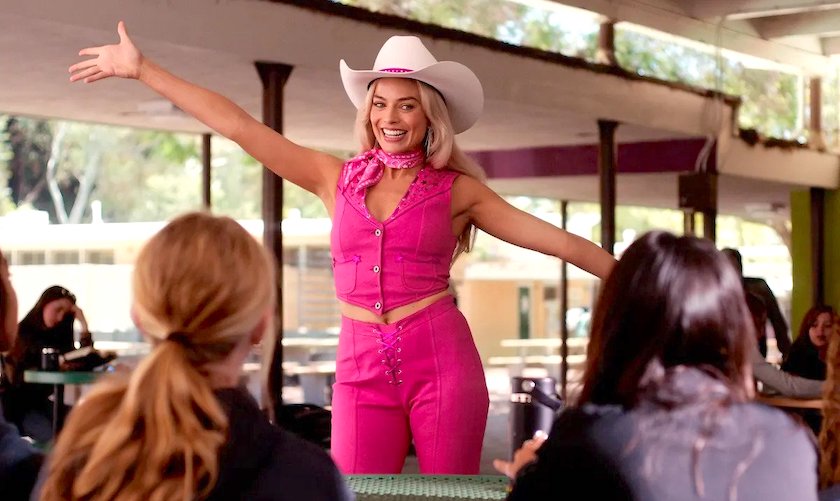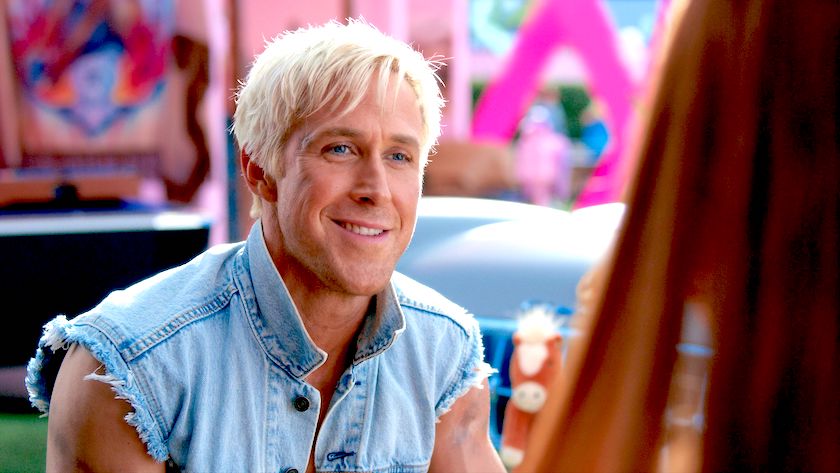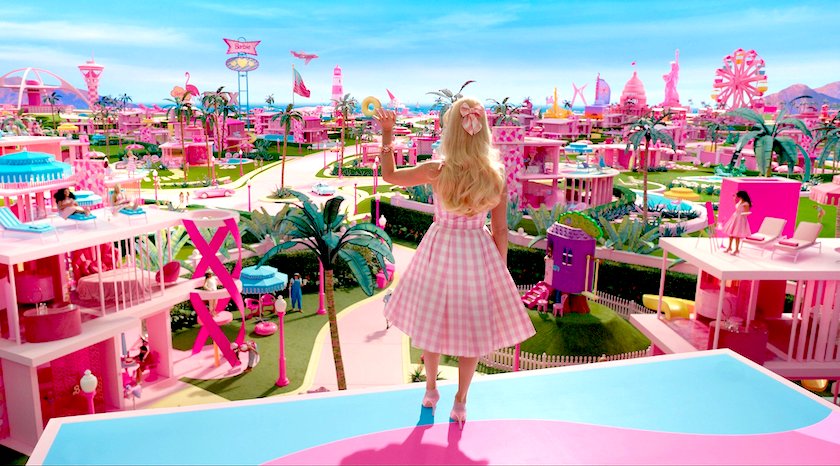Watch the full review above or read it in full below!
–
The live-action Barbie film has finally arrived, following around 14 years of starts and stops. Sony and Universal attached at different times; Warner Bros. came on board and got it all going with Margot Robbie attached to star and produce (Amy Schumer and Anne Hathaway had circled the role prior).
The bumpy development period has been somewhat understandable, after all, the Barbie doll/toy brand has experienced its fair share of controversies over the years, from body image concerns to gender stereotypes – and toy company behemoth Mattel, involved with crafting the movie via their film production division Mattel Films, certainly knows it.
And so, here we are, with a Barbie movie directed and co-written by Greta Gerwig, whose credits include well-received films Little Women and Lady Bird (I really dug that one). It’s a film that aims to attract fans of the toyline – both young and old; provide a broad enough comedy to strike the zeitgeist; show that, yes, Mattel is firmly aware of the toyline’s shortcomings over the years; and provide an inspirational, firmly feminist message for today’s climate. Does it nail it all – with a balance? I’m going to say no.
Now, before I’m derided out of the critical conversation for any number of reasons, I will say that I did enjoy aspects of the film. I did not hate it. Let’s kick off with the positives, according to me…


Robbie in the lead role certainly feels like a no-brainer now. The Aussie star has, of course, the appearance of the beloved doll, but we need more than that – and Robbie is perfect for the job. Robbie delivers a good performance as this “perfect” doll (“Stereotypical Barbie” to be specific) that is suddenly struck with an existential crisis. It’s Ryan Gosling that’s the film’s performance standout for me. Gosling nails it as Ken: from the “himbo,” simpleton elements to the character’s more stereotypically sexist tuns, the actor is game for it all and provides most of the laughs that I had.
Barbieland was great. I thought the art and production design of the film’s Barbieland world was quite wonderful. On a visual level, it really did look like the designs and the overall aesthetic of the Barbie toyworld were translated to the screen really well. There’s fun to be had spotting that various nods to the toyline. That being said, I’m not exactly well-versed with Barbie toys… so yeah.
The film’s first quarter also has a good amount of fun with the tropes of Barbie and, in particular, how the imaginative aspects from the real world translate to this fantasy land. When Margot Robbie’s Barbie showers, there’s no water, when she has a drink, there’s no actual liquid. Life in plastic, right?


And now for a few things… that I think really worked against the film…
Barbie, in my opinion, fumbles its attempt to juggle all those aforementioned aims. The film’s tunnel-vision focus on its message – on what it wants to say about the evils of patriarchy, woes of the female experience, and the wide-encompassing negatives of men (sorry, Kens) – derails it into a film dictated by obvious messaging.
Messaging in a movie? Go for it. But the messaging here is heavy-handed to the point of inertia.
Gerwig’s screenplay, which she wrote with real-life partner and fellow acclaimed filmmaker Noah Baumbach (Marriage Story, The Squid and the Whale) foregoes any form of subtlety with its thematic layering. The second Ken hits the real world and almost immediately gravitates to an oh-so patriarchal, anti-feminine ideology, I thought it may have been an amusing nod to the type of trigger-happy speeches formulated on a Twitter thread. But, nope, the film is crafted with an almost angry, frustrated lean, poorly made more palatable with tidbits of humour scattered on top. Of course, this may be the film’s purposeful, clearly passionate approach intended order to really drive the message home, but having characters basically stop and preach down the barrel halts the tone and humour, and puts it into finger-pointing territory.
While there’s a lot of self-aware and highly meta humour here, some of which lands, there’s also a hugely ironic branding exercise by Mattel. Will Ferrell, who I thought was severely underused, plays the CEO of Mattel. He’s kind of an antagonist, portraying an insensitive businessman who, shock horror, wants the company to earn money, money, money, and he’s steadfast on capitalising on female empowerment as one of the angles to do so. Mattel… nicely played.


At almost two hours, the film also feels too elongated for what is has to offer. The pace droops down heavily in the middle section. Once we head to the real world, the narrative takes a circling approach for what feels like an age as we await Barbie’s return to Barbieland in order to… you know. A tighter structure and a tauter screenplay would have worked wonders.
There’s a big line-up of stars here and that aspect, alone, is good I suppose. But I must say, there’s a disjointed cut and paste element to the many, many characters and their place within the story and the edit. Like I said, Will Ferrell’s involvement is ultimately quite minor, and maybe it’s just me, but I thought I could clearly see a pullback when it came to how much of the actor’s signature humour was left in his scenes. You may as well have grabbed anyone for this role. And some guest stars, like Dua Lipa in here as a Barbie mermaid, appeared to be included in reshoots – it barely felt like she was in the same scene.
Overall, like I said, I didn’t hate Barbie. The film has two great leads, strong, stylised visuals, some laughs, some nice fan service. And hey, although I thought it was juggled poorly, this is a film that stands strong with its convictions – almost admirably so. Unfortunately, and I’m aware that I may be in the minority here, I found Barbie to be a bit of a slog to get through.













